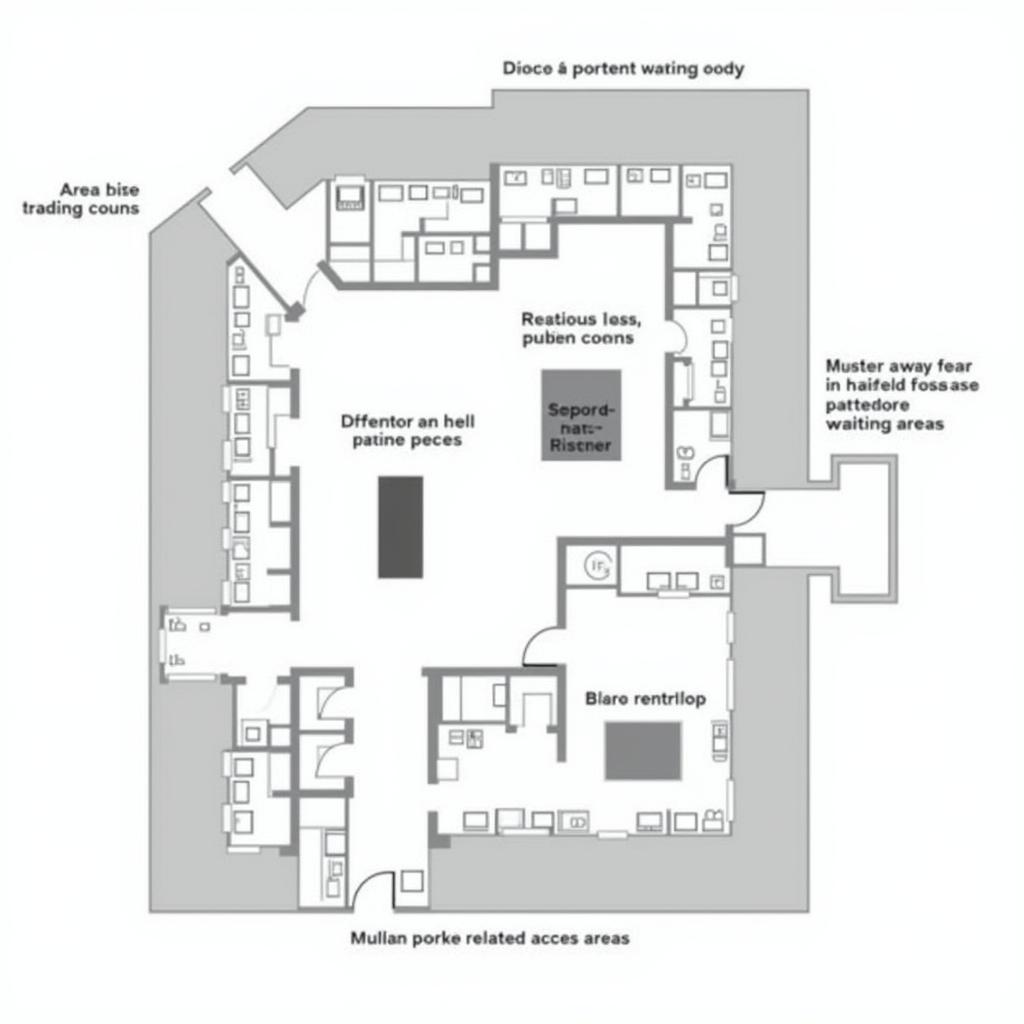Locating the morgue in a hospital can be a sensitive and sometimes confusing experience. This article addresses common questions about morgue locations, access protocols, and the reasons behind their specific placement within a hospital complex. We’ll explore the factors that influence morgue placement and dispel some common misconceptions.
Understanding Morgue Placement
Hospital morgues are carefully situated within the hospital complex for several key reasons, primarily focusing on infection control, logistical efficiency, and respect for the deceased and their families. They are generally located in less-trafficked areas of the hospital, away from patient care areas and public spaces. This placement minimizes potential distress to patients and visitors. Access is typically restricted to authorized personnel, including medical staff, funeral home representatives, and law enforcement.
Factors Influencing Morgue Location
Several factors determine the precise location of a hospital’s morgue:
- Infection Control: Morgues are designed with stringent infection control measures in place. Separation from patient areas is crucial to prevent the spread of any potential pathogens.
- Accessibility for Funeral Homes: Morgue locations often prioritize easy access for funeral homes to facilitate the transfer of the deceased. This can involve designated loading areas and separate entrances.
- Proximity to Relevant Departments: Morgues may be located near departments like pathology or the emergency room for efficient transfer of bodies.
- Space Considerations: Modern morgue design requires specialized equipment and facilities. The available space within a hospital can significantly influence the morgue’s final location.
- Respect for the Deceased and Families: A key consideration is creating a respectful and private environment for the deceased and their grieving families. This often involves separate waiting areas and discreet access points.
 Hospital Floor Plan Showing Morgue Location
Hospital Floor Plan Showing Morgue Location
Common Misconceptions about Morgue Locations
Popular culture often portrays morgues in dramatic and inaccurate ways. It’s important to address some common misconceptions:
- Basements: While some older hospitals may have morgues in the basement due to historical construction practices, modern hospitals often locate them on other floors for logistical and accessibility reasons.
- Secret or Hidden Locations: Morgue locations are not intentionally hidden, but they are discreetly placed to maintain privacy and respect. Hospital staff can provide information about the morgue’s location when necessary.
- Public Access: Morgues are generally not accessible to the public. Access is restricted to authorized personnel for security, privacy, and infection control reasons.
Finding the Morgue: Who to Ask
If you require information about the morgue’s location, discreetly inquire with the hospital’s information desk, security personnel, or a member of the medical staff. They can provide appropriate guidance and assistance.
Navigating a Difficult Time
Dealing with the loss of a loved one is a challenging experience. Understanding the hospital’s layout and procedures, including the morgue’s location, can help navigate this difficult time.
“Respect and sensitivity are paramount when dealing with the bereaved. Clear communication and discreet guidance are essential for hospital staff during this sensitive time,” says Dr. Emily Carter, a seasoned medical professional with over 20 years of experience in hospital administration.
What to Expect When Visiting the Morgue
Visiting the morgue can be emotionally difficult. Hospital staff are trained to provide support and guidance during this time. They can explain the procedures for viewing the deceased and answer any questions you may have.
“Providing a comfortable and private environment for families to grieve is a crucial aspect of compassionate care,” adds Dr. Carter.
Conclusion
Knowing where the morgue is located in a hospital can be important for various reasons. While often situated in less-trafficked areas for logistical, infection control, and respect considerations, hospital staff are always available to provide assistance and guidance regarding its location and access protocols. Remember, navigating this aspect of a hospital visit can be eased by respectful inquiries and understanding the reasons behind the morgue’s specific placement within the hospital environment.
FAQ
- Can anyone access the morgue? No, access is typically restricted to authorized personnel.
- Is the morgue always in the basement? Not necessarily, modern hospitals often place morgues on different floors for practical reasons.
- Who should I ask for directions to the morgue? Inquire discreetly with the information desk, security, or medical staff.
- What should I expect when visiting the morgue? Hospital staff will guide you through the process and offer support.
- Why are morgues located away from public areas? This prioritizes respect for the deceased, their families, and infection control.
- Are there specific procedures for viewing the deceased? Yes, hospital staff can explain these procedures and answer your questions.
- How can I find out more about the hospital’s morgue policies? Contact the hospital directly or inquire with staff members.
When you need support, please contact Phone Number: 02437655121, Email: [email protected] Or visit us at: No. 298 Cau Dien Street, Minh Khai, Bac Tu Liem, Hanoi, Vietnam. We have a 24/7 customer service team.